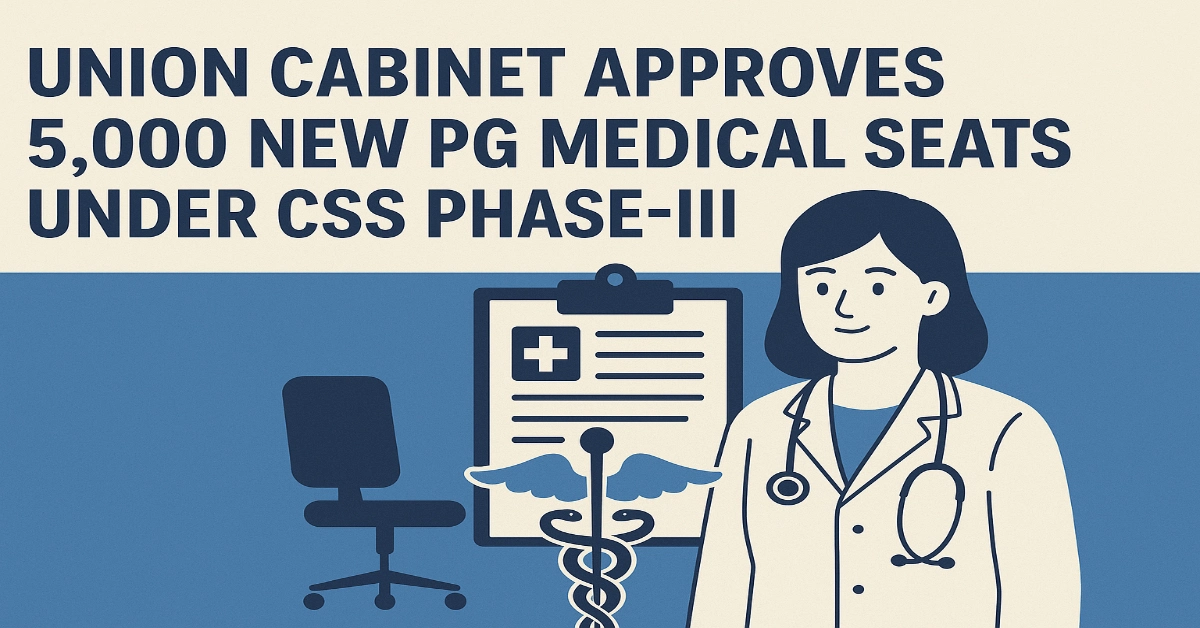The Union Cabinet, chaired by Prime Minister Shri Narendra Modi, has approved Phase-III of the Centrally Sponsored Scheme (CSS), focusing on strengthening postgraduate (PG) medical education in India.
Under this phase, the government plans to create 5,000 additional PG medical seats by 2028-29. This expansion aims to address the growing demand for specialist doctors, enhance the quality of medical education, and ensure equitable access to healthcare across the country.
Key Highlights of PG Expansion
- 5,000 new PG seats to be established in government medical colleges and standalone postgraduate institutes.
- Introduction of new specialties to meet emerging healthcare needs.
- Better regional distribution of PG seats to reduce concentration in urban areas and strengthen availability of specialists in rural and underserved regions.
- Improved teaching standards with enhanced infrastructure and faculty recruitment.
Financial Outlay
The estimated cost of Phase-III from 2025-26 to 2028-29 is Rs. 15,034.50 crore, of which:
- Central Government share: Rs. 10,303.20 crore
- State Governments’ share: Rs. 4,731.30 crore
The cost ceiling per PG seat has been fixed at Rs. 1.50 crore, ensuring sustainable and efficient expansion.
Benefits of PG Expansion
- Increased supply of specialists in critical fields, reducing shortages in healthcare delivery.
- Strengthened healthcare workforce to support India’s goal of Universal Health Coverage.
- Employment opportunities for medical faculty, researchers, and support staff.
- Better healthcare access for underserved populations through the availability of skilled doctors.
Government’s Long-Term Commitment
This initiative reflects the government’s commitment to building a robust pool of specialist doctors and strengthening India’s healthcare system. By expanding PG seats, Phase-III of CSS will play a vital role in bridging gaps in medical education and ensuring high-quality, affordable healthcare across the nation.
Read Also: High-Demand vs Low-Demand MD/MS Specialties: What Students Should Know
Read Also: Reason Behind NEET PG 2025 Hearing Postponement: Supreme Court Delays Explained

